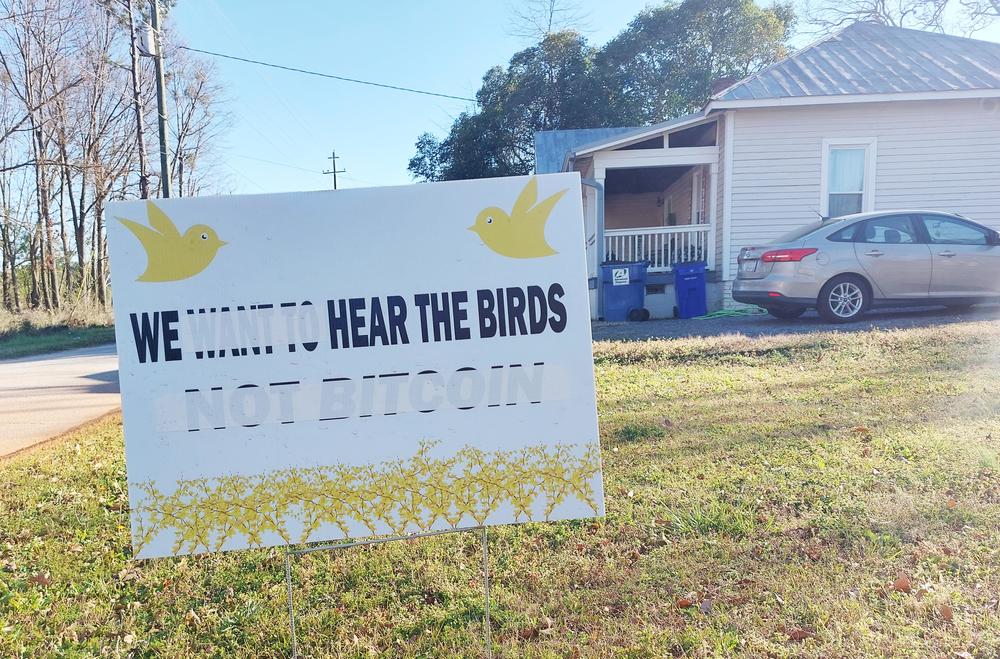
Caption
A yard sign, with white tape covering some of the words, protests a proposed cryptocurrency mine in the town of Forsyth. The computer servers are a potential noise nuisance, residents say.
Credit: Lars Lonnroth/Center for Collaborative Journalism

